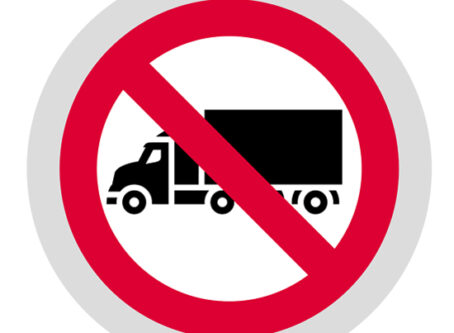Virginia I-81 bill would penalize drivers for using Route 11 to avoid toll
If truckers think they can take an alternate route to bypass a proposed toll on Interstate 81 in Virginia, think again. In a statement about the proposed toll, Sen. Mark Obenshain, R-Rockingham, emphasized a provision that would penalize drivers diverting to Route 11 to avoid the toll.
In a news release explaining the toll bill, Sen. Obenshain addressed concerns that the toll will divert heavy trucks and commuter traffic to Route 11. Included in the bill is a provision that will install a “video-monitoring system” to penalize drivers avoiding the toll.
“The bill establishes a video-monitoring system and automatic vehicle identification system to monitor and penalize trucks and vehicles who exit and re-enter Interstate 81 to avoid a toll,” Obenshain said in a statement. “This will protect commuters on Route 11 and other adjoining roads from dealing with traffic and safety concerns from diversionary drivers.”
Motorists will be found in violation of toll laws “if the operator (i) exits the interstate highway to travel on a parallel route in proximity and prior to a toll collection point and (ii) re-enters the interstate highway after the same toll collection point that demonstrates the routes traveled were selected to avoid paying the toll at such toll collection point, determined by the board.”
Obenshain also said the annual pass that allows commuters free, unlimited use of Interstate 81 for a small annual fee will incentivize passenger vehicle drivers to remain on Interstate 81 rather than take Route 11 or other local roads.
Jeff McConnell of Road Law questions the legality of the video monitoring.
“The Virginia law would force truckers to use and pay for a toll road instead of using a completely legal, alternative, public roadway and then, try hide the true purpose of the law (more money for the state) by claiming, ‘improved public safety,’ as the reason,” McConnell said. “No state should be able to force truckers off a commercially rated, public roadway, in direct violation of the Interstate Commerce Clause of the U.S. Constitution, and get away with it by claiming, ‘public safety,’ as the real reason for the law.”
In addition to the announcement about plans to penalize drivers, details about the proposed toll not mentioned in either the House or Senate bill also were given in the news release. Obenshain said there will six toll gantries, averaging one gantry every 50 miles on the approximately 300-mile stretch of Interstate 81 in Virginia.
Details in Senate and House bills
The Senate’s SB1716 and its identical version in the House, HB2718, authorizes the Commonwealth Transportation Board to impose a toll on Interstate 81. Revenue will go to the Interstate 81 Corridor Improvement Fund, also established in the bills. Money in that fund will be used for “capital, operating, tolling operations and maintenance, and other improvement costs identified in an Interstate 81 Corridor Improvement Plan adopted by the board.”
According to both bills, the board will have the authority to toll the entire length of I-81 in the state. Class 6 or higher vehicles will be tolled at a rate not higher than 17 cents per mile. Tolls for all other vehicles will not exceed two-thirds of the Class 6 and higher rate.
Tolls on bridges will follow certain restrictions. Class 6 or higher vehicles will not have a toll rate to exceed a total of $55.25 for using all tolled bridges along the entire length of I-81 in a single direction. Again, tolls on other vehicles will have similar rates no more than two-thirds of the rate of heavier vehicles.
If the board decides to establish the toll, it is directed to offer an annual pass to commuters. An annual pass will allow commuters in passenger vehicles to use I-81 with a 100 percent discount. The cost per year will not exceed the cost of one full-length round trip. With the annual pass, passenger get unlimited use of I-81 without paying tolls.
Toll rates and annual pass costs can be adjusted no more than every eight years. Increases cannot exceed the increase in the U.S. Average Consumer Price Index. However, the transportation board can adjust toll rates if revenue is considered insufficient to cover existing debt related to the tolls. In that case, tolls can be raised enough to cover that debt.
Land Line Now reporter Mary McKenna contributed to this report.









